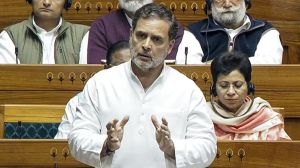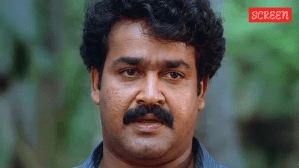Kishanganga: Nariman to battle it out with Pakistan
The government has started preparing for a legal battle with the first objective to stop Pakistan.
With Pakistan dragging India to international court of arbitration to resolve the dispute regarding the 330 MW Kishanganga Hydel project in Jammu and Kashmir,the government has started preparing for a legal battle with the first objective to stop Pakistan from getting any interim order or stay on Kishanganga project.
Top government officials from water resources ministry on Friday held deliberations with noted lawyer Fali S Nariman,who is going to lead the Indian legal team,preparing its arguments for various scenarios. Nariman will be supported by international law expert Shankar Das during the hearings in the seven-judge bench international court of arbitration.
Government sources said that Indias efforts,to begin with,will be focussed to stall any attempt by Pakistan to get an interim order to stop the ongoing activities on Kishanganga project. New Delhi fears that Pakistan may choose to drag the case and delay the project indefinitely once it gets a stay order.
India is likely to send a 10-member delegation for the first hearing slated for January 14 in Hague. Apart from Nariman and Shankar Das,the delegation will have Union Water Resources Secretary D V Singh,Chairman of the Central Water Commission A K Bajaj,Indus Commissioner G Aranganathan and his deputy Darpan Talwar,two senior officials from the Ministry of External Affairs Y K Sinha and Narendra Singh along with Narimans junior Subhash Sharma and K S Nagaraja,executive director of NHPC which is building the Kishanganga project.
Nariman and Shankar Das had offered their services to the government during the resolution of differences over the construction of Baghlihar hydel project after Pakistan took it to World Bank for resolution through a neutral expert. Nariman had led the Indian team that had argued before World Bank appointed neutral expert Raymond Laffite. The case which was referred to neutral expert in 2005 was resolved only in 2007 with Indian side winning the case.
However,unlike Baglihar,this case is different as it is the first time that any issue under the Indus Water Treaty has gone to international court or arbitration. The differences between India and Pakistan over Baglihar were a level below the dispute on Kishanganga. Thats why the Baglihar issue was referred to a neutral expert,who happened to be a technical expert on the issues of multi-purpose hydro-projects.
In this case,Pakistan has raised issue claiming that Kishanganga project would amount to violation of the treaty and raised two legal questions that can be resolved only through an international court of arbitration. Indian side expresses confidence that Pakistans claims did not hold much water and it will be able to prove it during the process of arbitration.
- 01
- 02
- 03
- 04
- 05































